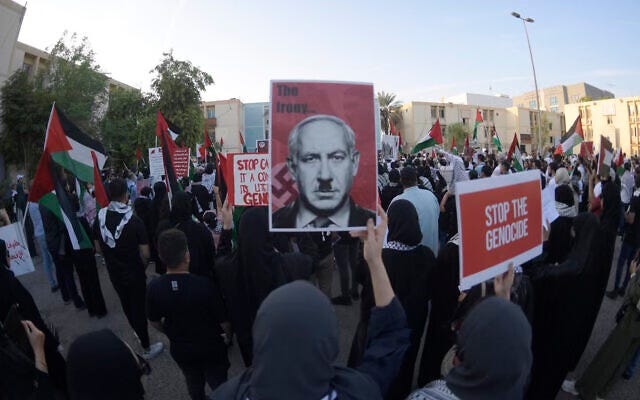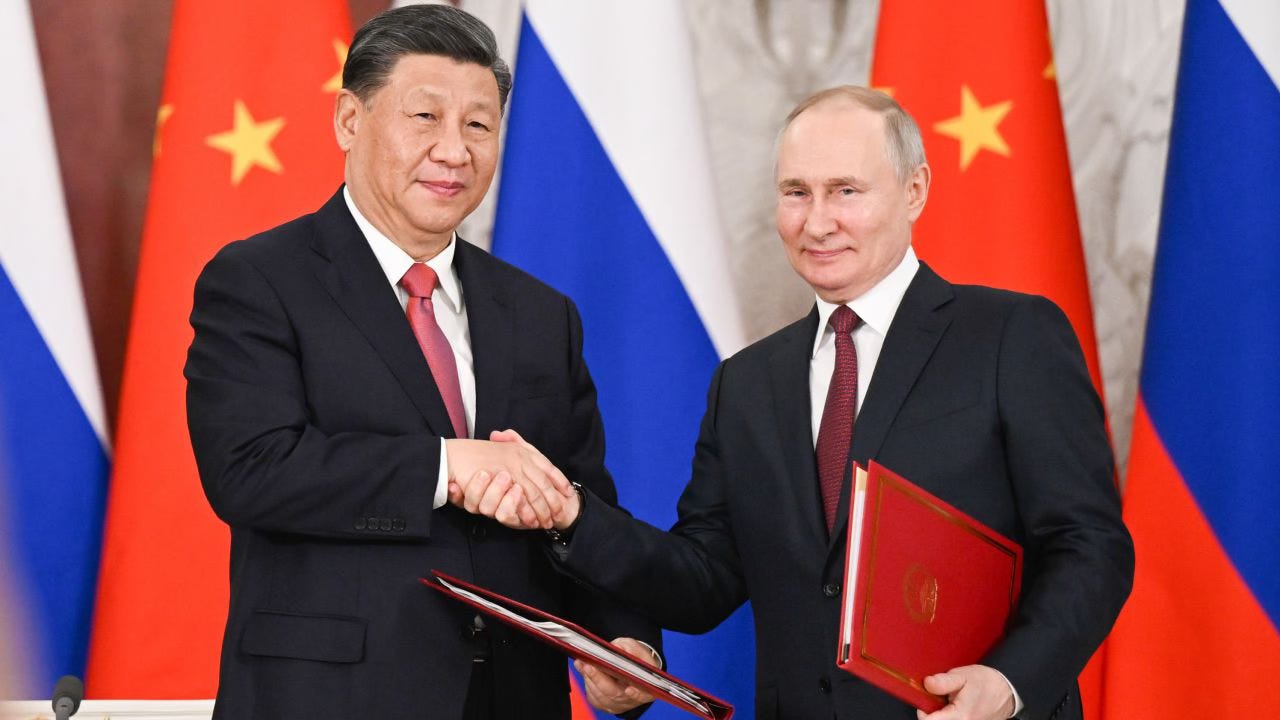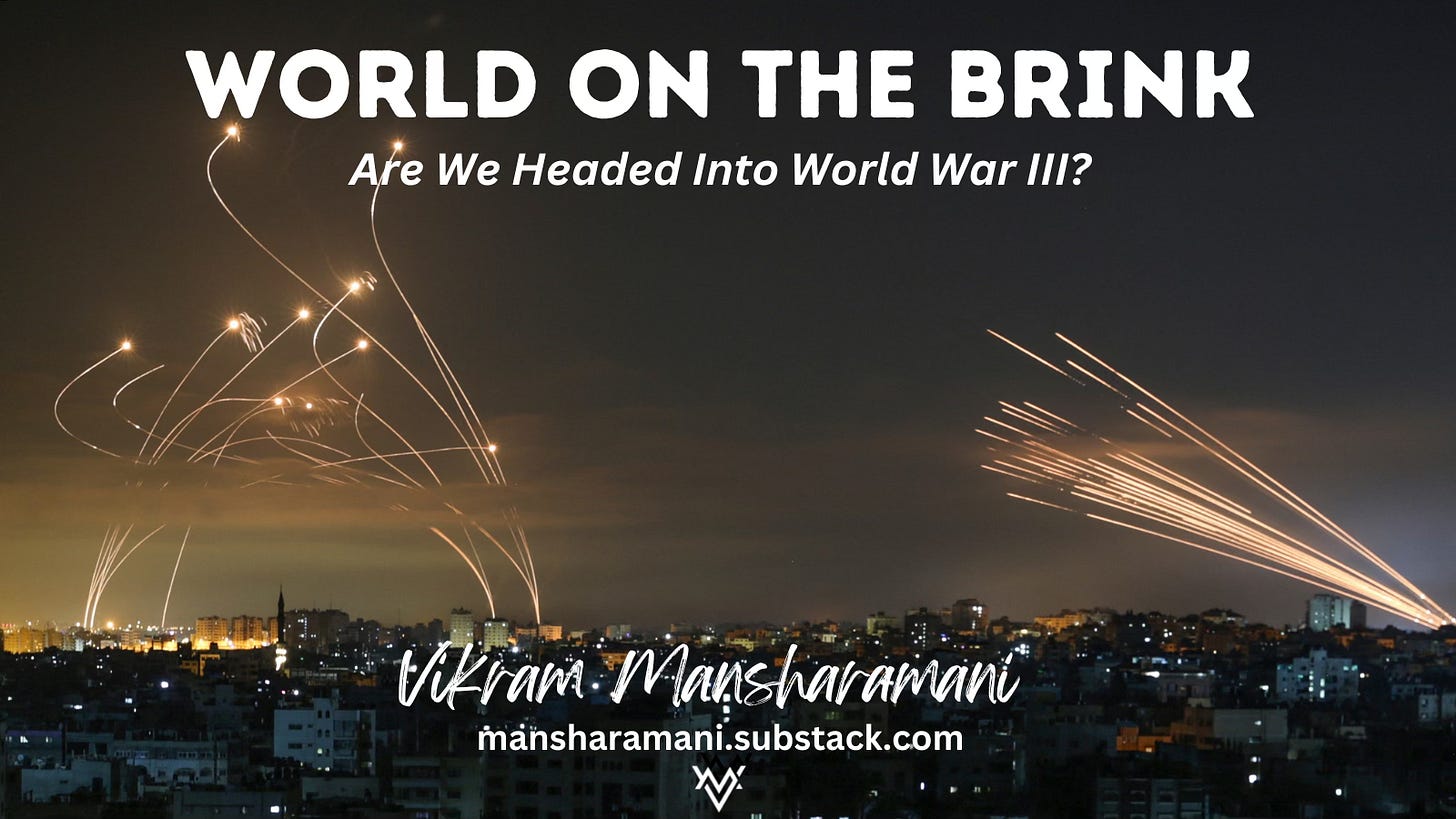I recently returned from a week-long trip to the Middle East. Over the course of a week in the United Arab Emirates (UAE), I had the opportunity to meet with dozens of bankers, academics, entrepreneurs, government officials, and members of the press. And while most of my conversations were focused on the outlook for the global economy, the anticipated impact of technologies like artificial intelligence, or how the commercialization of space might create investment opportunities, every discussion also touched on the Israel-Hamas war and my strong conviction that it is a “hot front” in the US-China War.
Unsurprisingly, the reactions and opinions I heard varied. Many of the Emiratis I spoke with were equally disturbed by both Hamas and Israel, expressing deep concern for the loss of innocent life. Others sided with Israel, and some with the Palestinians. One analogized the situation to a fight between two adults, noting “they should not fight in a playground where innocent bystanders can get hurt…” while implicitly acknowledging legitimate grievance on both sides.
Over the course of the last week, I grew increasingly convinced the Middle East is a powder keg. Despite the relative calm that characterized my time in the region, five specific developments caught my attention and dominated my discussions, making the rapidly rising risks of global war obvious.
#1: Blinken Visits the Region; Iran’s Reaction
US Secretary of State Anthony Blinken visited the Middle East a week after the Hamas attacks and met with leaders in Bahrain, Qatar, Jordan, Israel, Egypt, Saudi Arabia, the UAE. In addition to being rushed into a bomb shelter while visiting Tel Aviv, Secretary Blinken also spent a night awake in Saudi Arabia waiting to meet crown prince Mohammed bin Salman (“MBS”), the country’s de facto ruler. According to the New York Times,
The most disturbing reaction to the Secretary’s visit to the region, however, came from Iran, which basically threatened military escalation. After he left the UAE, Iran’s Mission to the United Nations made a public statement: “If the Israeli apartheid’s war crimes and genocide are not halted immediately, the situation could spiral out of control & ricochet far-reaching consequences”(emphasis in original). Iranian Foreign Minister Amir Abdollahian shared a similar view: “If the Zionist regime's crimes against the Palestinian people and citizens continue, no one can guarantee that the situation in the region will remain the same.”
#2: Narrative War Escalates
On October 17th, I received a breaking news alert on my phone indicating that an “Israeli Airstrike on Gaza Hospital” killed more than 500. The news broke as President Joe Biden was en route to the Middle East to meet with leaders in Israel and Jordan. Almost immediately after the news broke, the meetings in Jordan with Palestinian leaders was cancelled, derailing potential diplomatic progress.
Shortly thereafter, reports emerged that the hospital blast may not have beendue to Israeli action but was instead caused by a misfired rocket from Palestian militants in Gaza. Nevertheless, Hamas and Iran continue to push forth the narrative that the hospital explosion was the result of an Israeli attack using American bombs. See the graphic below, which the Permanent Mission of the Islamic Republic of Iran to the United Nations in New York has had on its home page.

On Saturday, October 21st, The Wall Street Journal presented compelling video analysis that used geolocation and timestamped recordings from multiple vantage points to show the hospital explosion was from a misfired rocket intended for Israel. Despite this and other evidence, including a statement from President Joe Biden from the Oval Office that bluntly stated “the hospital explosion in Gaza… was not done by the Israelis.”
Regardless, and perhaps most problematically, the hospital explosion has turned into a narrative war with little attention being paid to facts. Even after the evidence was presented by US and Israeli intelligence services, Jordanian Foreign Minister Ayman Safadi bluntly dismissed the analysis, telling NBC News’ Lester Holt that “Nobody is buying that narrative in this part of the world.” His predecessor told CNN “The Arab public puts the attack squarely on Israel.”
#3: Abraham Accords: Test or Final Exam?
Let’s recall that immediately following the October 7th attacks, many nations were reluctant to condemn Hamas and their actions. Saudi Arabia had, as I noted at the time, issued a statement that explicitly did not condemn the attacks and instead laid the blame on Israel. The UAE and Bahrain, both countries that had normalized relations with Israel, were quick to condemn the attacks.
One of the main reasons for these different reactions was the Abraham Accords, a collection of bilateral agreements that normalized relations between Israel and the UAE, Bahrain, Morocco, and Sudan that were signed between September and December 2020. The signing of the agreements did not sit well with Hamas. On the very day the Israel-UAE normalization was announced, Hamas spokesman Fawzi Barhoum stated
He went on to explicitly condemn the UAE and said it should not “normalize with the occupation, beautify its face and integrate it in the region.” Three years later, as the Kingdom of Saudi Arabia was moving towards normalization with Israel, Hamas attacked Israel and successfully derailed a Saudi-Israel peace treaty.

More concerning than the lost opportunity with Saudi Arabia, however, is the rising risk to the existing Abraham Accords from domestic unrest within Bahrain and Morocco. Several Bahraini militias, associated with Iran, were quick to offer support for Hamas, praising their efforts and progress at exterminating Israelis. And despite an official government statement condemning the Hamas attacks, “Morocco’s Islamist Justice and Development Party, which had a parliamentary majority until the 2021 elections, praised the Hamas attack,” noted Foreign Policy. To complicate matters further, Sudan, another country that normalized relations with Israel in 2020, last week agreed to exchange official delegations and restore diplomatic relations with Iran.
In terms of hopes for a peaceful resolution to the conflict, it’s worth revisiting The Platform of the Islamic Resistance Movement (Hamas), also know as “The Charter of Allah.” Consider the following sentence that begins Article 13: “[Peace] initiatives, and so-called peaceful solutions and international conferences are in contradiction to the principles of the Islamic Resistance Movement.” And perhaps most ominously, “There is no solution to the Palestinian problem except by Jihad. The initiatives, proposals and International Conferences are but a waste of time, an exercise in futility.” And let’s not forget that Iran has, as its main objective, the destruction of Israel.
#4: Belt & Road Birthday Party Highlights Splitting World
While Iran and Israel played with matches in the Middle East tinderbox, Vladimir Putin attended the 10th birthday party for China’s Belt & Road Initiative hosted by his dear friend Xi Jinping. More than two dozen leaders and hundreds of delegations, mainly from emerging markets, descended on Beijing to mark the first decade of China’s signature global development program that launched in 2013. A news headline summarizing the event captured a major takeaway from the gathering: “Putin touts solidarity with China in Xi’s pitch for new world order as crisis grips Middle East.”

One development at the event that I found noteworthy was the change in attendance from the last Belt & Road Initiative Forum, which was held four years ago and had 37 heads of state in attendance, compared to the 24 who trekked to Beijing this year. Noticeable absences included numerous leaders from Europe (Italy, Greece, Austria, Portugal and the Czech Republic) as skepticism about Chinese intentions has grown.
At the event, Putin and Xi reaffirmed their deep friendship. CNN used the opportunity to summarize the depth and duration of the relationship between two of the world’s leading autocrats:
What seems increasingly obvious is that the world is bifurcating into two global ecosystems, one led by the United States and the other by China. The Belt and Road Initiative Forum this year made that crystal clear.
#5: Blurring of Deterrence and Escalation
In the wake of the Israel-Hamas war, military movements into the Middle East have been accelerating at a rapid clip. The United States has sent the USS Dwight D. Eisenhower and its strike group are heading to the Persian Gulf, while the USS Gerald Ford and its strike group are positioned in the eastern Mediterranean, not far from Israel. Both actions drew aggressive commentary from Iran and its proxies warning of escalation if America were to engage in the conflict.
In addition to sending two carrier strike groups to the region, US Secretary of Defense Lloyd Austin ordered the 26th Marine Expeditionary Unit to be positioned in the waters off Israel. The marines in this unit are capable of conducting amphibious operations and crisis response, among other missions. Additional military resources are also being sent to the region.
While this was happening, the Organization of Islamic Cooperation held an emergency meeting in Jeddah, Saudi Arabia. On the sidelines of that gathering, Iranian Foreign Minister Hossein Amirabdollahian met with Qatar’s Minister of State for Foreign Affairs Sultan Al Muraikhi and threatened military escalation: “The US should understand that there is no way all parties exercise restraint while the Zionist regime is allowed to do whatever it wants with Washington’s full backing.” The Islamic Republic also telegraphed that they’d begin trafficking in ballistic missiles, and as I wrote this piece, tensions between Israel and Hezbollah were rising as rocket fire crossed Israel’s northern border and Israel struck locations in Southern Lebanon.

And perhaps the most concerning military move into the region was the deployment of 6 Chinese warships to the Middle East after Beijing explicitly noted that “Israel is acting beyond the scope of self-defense.” While the People’s Liberation Army (PLA) Navy’s 44th naval escort taskforce had been conducting routine activities in the region, it stayed in the region to conduct joint exercises with Oman’s Navy before deploying in the Persian Gulf to visit the Shukwaikh Port in Kuwait.
SO WHAT?
Secretary of State Anthony Blinken stated that the US expects Iranian escalation: “We expect that there’s a likelihood of escalation by Iranian proxies directly against our forces, and against our personnel,” before noting America is taking steps to defend and protect our forces and our people.
While any one of these developments would be the basis of growing concern, the simultaneous occurrence of all five is genuinely alarming. The world appears to be on a path towards greater conflict, and with the arrival of US and Chinese military vessels in an already tense area, the slightest misunderstanding, misinterpretation, or miscalculation could spark a US-China kinetic war. The world is playing with matches in a tinderbox, producing a highly combustible situation that warrants careful and thoughtful consideration from all involved.
About Vikram Mansharamani
Dr. Mansharamani is a global generalist who tries to look beyond the short term view that tends to dominate today’s agenda. He spends his time speaking with leaders in business, government, academia, and journalism…and prides himself on voraciously consuming a wide variety of books, magazines, articles, TV shows, and podcasts. LinkedIn twice listed him as their #1 Top Voice for Global Economics and Worthprofiled him on their list of the 100 Most Powerful People in Global Finance. He has taught at Yale and Harvard and has a PhD and two masters degrees from MIT. He is also the author of THINK FOR YOURSELF: Restoring Common Sense in an Age of Experts and Artificial Intelligence as well as BOOMBUSTOLOGY: Spotting Financial Bubbles Before They Burst. Follow him on Twitter or LinkedIn.





We have a weak leader in the White House and all major nations know that.
Six terrifying steps that could see Gaza crisis spiral into WW3...
https://www.the-sun.com/news/9382478/israel-spiral-ww3-danger-navy-chief/